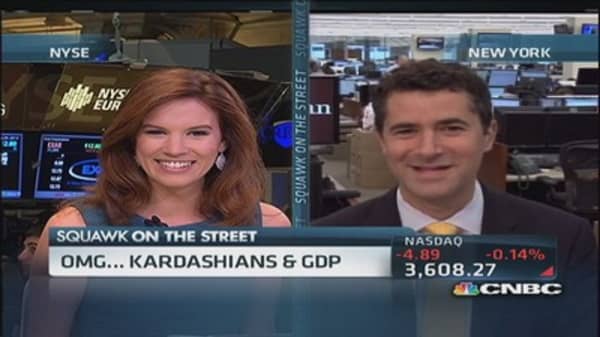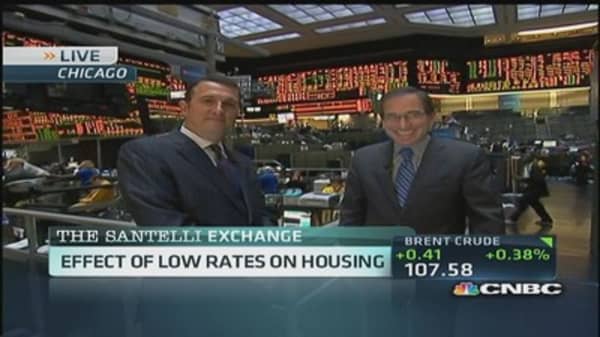The economy is a lot bigger than we think, but no thanks to Kim Kardashian and her cohorts in the world of reality TV.
Experts at the Bureau of Economic Analysis have gone all the way back to 1929 to recalculate the size of gross domestic product, and a key ingredient will be the contribution that entertainment makes.
Film, long-running television shows and some aspects of the literary world, which previously had not been counted, now will be included.
What won't count, though, are wildly popular reality shows like "Keeping Up with the Kardashians" and "Jersey Shore."
Turns out their contributions just aren't lasting enough.
"Investment in reality programming or the production of reality programming is not going to be counted as investment, because the asset produced isn't long-lived," BEA spokesman Thomas Dail said. "There's not that sort of revenue stream that goes on into the future."
Entertainment will need to possess three qualities to be counted: Ownership rights, a long life, and repeated use.
"That's why something like a motion picture will be included as investment even after the movie has its initial run in theaters. (It will have) streaming, DVD sales, online sales, TV movie of the week," Dail said. "That future stream of production makes it an investment."
The new adjustments show the U.S. economy is now worth about $16.6 trillion, up from just under $16 trillion previously.
In addition to entertainment, the new calculations include research and development, transactions involving defined benefit pension plans, and nonfinancial ownership transfer costs in real estate, or the costs involved in sales beyond agent commissions.
(Read more: GDP revisions will go back to 1929)
While it may all sound like economist mumbo-jumbo, the measure will be part of the equation the Federal Reserve will use to decide how much longer its unprecedented accommodative monetary policies will stay in place.






